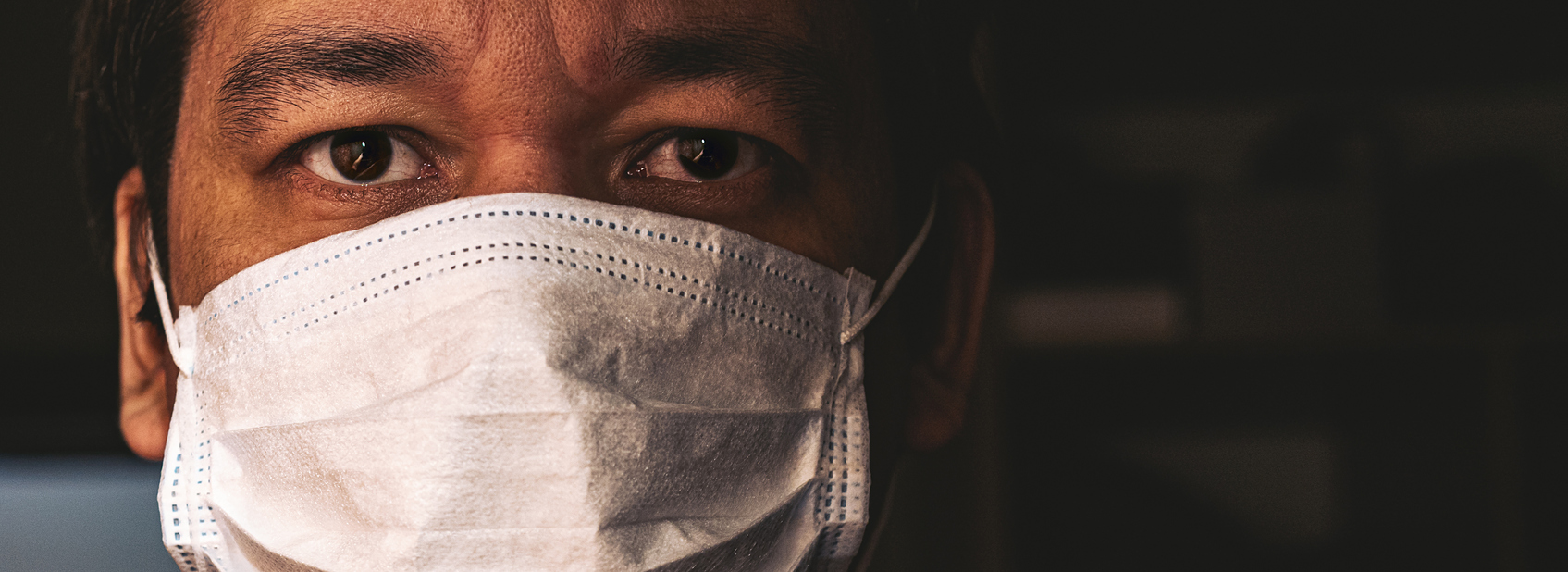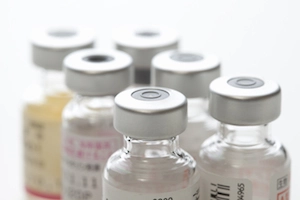With U.S. Government expenditures on health care totaling more than $1.2 trillion annually – almost 5% of GDP – the battle against fraud and waste in the healthcare industry is a top priority of the Justice Department. Year after year, healthcare-related lawsuits make up the bulk of False Claims Act cases and recoveries. They comprised $2.6 billion of the total $3 billion recovered under the False Claims Act in 2019 – the ninth consecutive year of topping $2 billion. If you have knowledge of healthcare fraud, contact whistleblower lawyer Mark A. Strauss today to take action.

Healthcare Fraud Harms Patients and Inflates Costs
The U.S. Government sponsors six major healthcare programs – Medicaid, Medicare, the State Children’s Health Insurance Program (SCHIP), TRICARE (the health program for uniformed service members, retirees, and their families), the Veterans Health Administration (VHA), and the Indian Health Service (IHS).
Fraud on these programs vastly increases the nation’s healthcare costs at the expense of taxpayers. Of every dollar spent on healthcare, it is estimated that three to ten cents are lost due to fraud.
False Claims Act cases brought by qui tam whistleblowers have been important to combating this, and have exposed fraud throughout the healthcare industry – by pharmaceutical and medical device manufacturers, hospitals, pharmacies, physicians, managed healthcare providers, palliative or hospice care organizations, home health agencies, skilled nursing and inpatient rehabilitation facilities, and testing laboratories.
Notably, fraud in the healthcare industry can be particularly pernicious not only due to the financial cost but also the human consequences – it can seriously undermine quality of care and put patients at risk of harm.
This grim reality demonstrated by cases holding drug manufacturers accountable for their roles in the opioid crisis. For example, in 2019 Insys Therapeutics paid $195 million to resolve claims that it paid unlawful kickbacks to induce physicians and nurse practitioners to prescribe Subsys – a dangerous and highly addictive formulation of Fentanyl – to their patients. The whistleblowers who alerted the government to the existence of these appalling practices received tens of millions of dollars in awards under the False Claims Act.
The Most Common Illegal and Fraudulent Health Care Practices
Healthcare fraud involves a wide range of illegal practices, the most prevalent of which include:
- Billing for medically unnecessary treatments, procedures, tests, or equipment.
- Billing for services or items that were not actually provided.
- Unbundling or “exploding” charges, which consists of billing under multiple codes when one, comprehensive billing code is available for the group of procedures in question.
- Upcoding, which involves the use of billing codes that indicate that the patient has a more serious diagnosis or requires more expensive or complex services or procedures than is in fact the case.
- Billing for the treatment of patients who are not eligible to receive medical services under the healthcare program.
- Misrepresenting the qualifications or type of personnel delivering medical services.
- Billing for unallowable costs.
- Inflating general & administrative costs of a managed care organization (MCO).
- Failure to report and return overpayments.
- Marketing a drug or medical device through false or misleading claims.
- Falsely certifying that a provider or healthcare organization is operating in compliance with relevant requirements to maintain its provider status, including Conditions of Participation (CoPs), Conditions for Coverage (CfCs), or the terms of its Participation Agreement.
- Billing for new equipment when supplying items that are used.
- Falsifying a home health care beneficiary’s “homebound” status or need for skilled services.
- Falsifying a healthcare provider’s qualification for outlier payments.
- Off-label marketing, which consists of promoting drugs or medical devices for uses that have not been approved by the FDA.
- Falsely certifying compliance with the FDA’s Current Good Manufacturing Practice (CGMP) regulations in the production of pharmaceuticals.
- Falsely representing that a medical device has been manufactured in accordance with the product’s Premarket Approval (PMA) or 510-K submissions to the FDA when in fact there have been material changes in design, materials, or components.
- Manipulating, falsifying, or mispresenting clinical trial data.
Fraud is their game.
Integrity is yours.
Healthcare Whistleblower Cases Based on Illegal Referrals
Another serious abuse for which potential qui tam whistleblowers in the health care industry should be on the lookout involves the illegal referral of patients and medical business – specifically, the billing of federal healthcare programs for medical services or items resulting from the referral of business in violation of the Anti-Kickback Statute (AKS) or the Physician Self-Referral Law (the Stark Law).
Congress enacted the Anti-Kickback Statute and Stark Law because it feared that financial incentives would corrupt medical decision-making, leading to waste, abuse, and the overutilization of medical resources. Cases involving Anti-Kickback Statute and Stark Law violations constitute a significant proportion of False Claims Act litigation.

The Anti-Kickback Statute prohibits actors in the health care industry from paying or receiving kickbacks or “remuneration” – which is defined expansively to include “anything of value” – to influence, induce, or compensate another party for the referral of patients or business.
Notably, the phrase “anything of value” under the Anti-Kickback Statute covers not only direct payments for business referrals – for example, agreement to refer business for a percentage of the recipient’s revenues.
Rather, it also encompasses indirect, covert, or in-kind benefits that amount to disguised remuneration. Examples of such hidden kickbacks include free or below-market services or leases of office space or equipment, unjustified rebates, excessive compensation for directorships or other roles or positions, hotel stays, trips, entertainment, meals, waivers of copays, and supposed speaker fees or honoraria.
Essentially, any arrangement made to induce or reward a party for the referral of medical services or items reimbursed by the federal government can violate the Anti-Kickback Statute and form the basis of a False Claims Act lawsuit. And both the payer and recipient of the kickback can be held liable in the qui tam case.
The Physician Self-Referral Law (commonly known as the Stark Law) prohibits doctors from referring patients to business entities in which the physician or an immediate family member has a financial relationship. Illegal self-referrals in violation of the Stark Law typically involve laboratory, therapeutic, or diagnostic services or supplies or equipment such as orthotics or prosthetics.
If you know about fraud against a government healthcare program, reach out to us for a free and confidential consultation.
Free Consultation
No Fee Unless We Win!
Call or Text Now

Published By
Attorney Mark A. Strauss
Mark is a battle-hardened and tenacious anti-fraud attorney with more than twenty years of experience in complex civil litigation. He has represented qui tam whistleblowers under the False Claims Act as well as victims of fraud under the federal securities laws and the Racketeer Influenced and Corrupt Organizations Act (RICO). His efforts have resulted in the recovery of hundreds of millions of dollars for clients.
Practices
Whistleblower Practices
- False Claims Act Whistleblower Lawsuits
- Customs Fraud
- COVID-19 Relief Fraud
- Healthcare Fraud
- Government Contracting & Procurement Fraud
- Grant Fraud
- Federal Credit Assistance Fraud
- Securities Law Violations & the SEC Whistleblower Program
- Tax Fraud & the IRS and New York State Whistleblower Programs
- State False Claims Acts